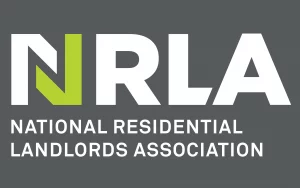NRLA Urges Reform: Challenges for landlords & tenants. Action is needed now to support the rental sector. Landlords and tenants nationwide are facing challenges due to rising mortgage costs, increased taxes, and uncertainty surrounding upcoming rental reforms. Urgent government action is needed to provide support to the private rented sector.
The recent interest rate hike by the Bank of England has heightened concerns among landlords. Even prior to this decision, the Intermediary Mortgage Lenders Association (IMLA) highlighted the escalating expenses of buy-to-let mortgages. Recent data from IMLA reveals that some landlords have experienced a staggering 240% increase in mortgage costs since December 2021.

In addition, a comprehensive analysis commissioned by the NRLA and conducted by Capital Economics highlights the potential decline in the supply of private rented properties. The research indicates that if the base interest rate reaches five percent and remains above 2.5 percent until the end of 2027, up to 13% of UK private rented properties could be lost compared to 2021. This would result in an annual loss of £1 billion in income and corporation tax revenue for the Treasury.
The potential loss of these properties would exacerbate the already dire housing crisis, as the demand for rental homes far outweighs the available supply.
In the first quarter of this year, net profits for investors in the private rented sector saw a significant decline, reaching their lowest level since 2007, according to Savills. This drop is attributed to rising interest rates and the impact of tax changes in the sector. While some argue that landlords should bear the additional costs, the reality is that the majority of landlords are individuals who own just one or two properties, often using them to supplement their pensions. They are not wealthy property magnates with unlimited resources.
An urgent measure to support renters in accessing the rental market is to unfreeze the Local Housing Allowance (LHA). It is alarming that, amidst a cost-of-living crisis and historical inflation, the housing benefits system remains tied to rent levels from April 2020 rather than reflecting current rents. As a result of this freeze, as highlighted by the Institute for Fiscal Studies, only five percent of private rental properties listed on Zoopla are affordable for recipients of housing benefits or Universal Credit. This situation is simply unacceptable.
Unfreezing the Local Housing Allowance (LHA) has the potential to yield cost savings for the government. According to government estimates, raising housing benefit rates nationwide to the 30th percentile would incur a cost of £700 million in 2023/24. In comparison, in 2021/22 alone, local councils in England spent £1.6 billion on temporary accommodation for homeless households.
In addition to these measures, it is essential to address the financial burdens faced by responsible landlords. To achieve this, the Chancellor should reverse the Treasury’s decision to limit mortgage interest relief (MIR) in the private rented sector to the basic rate of income tax.
Research conducted by Capital Economics on behalf of the NRLA reveals that restrictions on mortgage interest relief have resulted in approximately 1.2 million fewer properties being available in the private rented sector in the UK than there would have been otherwise. Furthermore, it suggests that the lost rental properties could have contributed an additional £1.5 billion in annual income and corporation tax revenue to the Treasury.
Reversing the change in mortgage interest relief (MIR) would effectively address the supply-side challenges in the rental market, mitigate future rental inflation, and generate valuable revenue for the Treasury.
The findings from Capital Economics further support our argument that the government should eliminate the 3-percentage point stamp duty surcharge on the purchase of additional homes for rental purposes. According to their analysis, this step would result in nearly 900,000 new private rented homes becoming available across the UK in the next decade. Their modelling also indicates that these additional homes would contribute to a significant tax windfall of £10 billion for the Treasury over the same period, thanks to increased income and corporation tax receipts.
Immediate action is necessary for the government to support responsible landlords in providing more rental homes for tenants, particularly those who currently face challenges in accessing the private rented sector.
* Meera Chindooroy is deputy director of campaigns and policy for the National Residential Landlords Association *
Read more Property Investing News HERE
